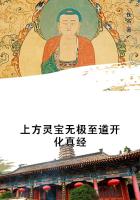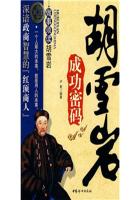Did Tindal, who first used it, or Archdeacon Coxe and Mr. Thackeray, who have borrowed it, ever in their lives hear any speaking which did not deserve the same compliment? Did they ever hear speaking less ornamented than that of Demosthenes, or more diffuse than that of Cicero? We know no living orator, from Lord Brougham down to Mr. Hunt, who is not entitled to the same eulogy. It would be no very flattering compliment to a man's figure to say, that he was taller than the Polish Count, and shorter than Giant O'Brien, fatter than the Anatomie Vivante, and more slender than Daniel Lambert.
Pitt's speech, as it is reported in the Gentleman's Magazine, certainly deserves Tindal's compliment, and deserves no other. It is just as empty and wordy as a maiden speech on such an occasion might be expected to be. But the fluency and the personal advantages of the young orator instantly caught the ear and eye of his audience. He was, from the day of his first appearance, always heard with attention; and exercise soon developed the great powers which he possessed.
In our time, the audience of a member of Parliament is the nation. The three or four hundred persons who may be present while a speech is delivered may be pleased or disgusted by the voice and action of the orator; but, in the reports which are read the next day by hundreds of thousands, the difference between the noblest and the meanest figure, between the richest and the shrillest tones, between the most graceful and the most uncouth gesture, altogether vanishes. A hundred years ago, scarcely any report of what passed within the walls of the House of Commons was suffered to get abroad. In those times, therefore, the impression which a speaker might make on the persons who actually heard him was everything. His fame out of doors depended entirely on the report of those who were within the doors. In the Parliaments of that time, therefore, as in the ancient commonwealths, those qualifications which enhance the immediate effect of a speech, were far more important ingredients in the composition of an orator than at present. All those qualifications Pitt possessed in the highest degree. On the stage, he would have been the finest Brutus or Coriolanus ever seen. Those who saw him in his decay, when his health was broken, when his mind was untuned, when he had been removed from that stormy assembly of which he thoroughly knew the temper, and over which he possessed unbounded influence, to a small, a torpid, and an unfriendly audience, say that his speaking was then, for the most part, a low, monotonous muttering, audible only to those who sat close to him, that when violently excited, he sometimes raised his voice for a few minutes, but that it sank again into an unintelligible murmur. Such was the Earl of Chatham, but such was not William Pitt. His figure, when he first appeared in Parliament, was strikingly graceful and commanding, his features high and noble, his eye full of fire. His voice, even when it sank to a whisper, was heard to the remotest benches; and when he strained it to its full extent, the sound rose like the swell of the organ of a great Cathedral, shook the house with its peal, and was heard through lobbies and down staircases to the Court of Requests and the precincts of Westminster Hall. He cultivated all these eminent advantages with the most assiduous care. His action is described by a very malignant observer as equal to that of Garrick. His play of countenance was wonderful: he frequently disconcerted a hostile orator by a single glance of indignation or scorn. Every tone, from the impassioned cry to the thrilling aside, was perfectly at his command. It is by no means improbable that the pains which he took to improve his great personal advantages had, in some respects, a prejudicial operation, and tended to nourish in him that passion for theatrical effect which, as we have already remarked, was one of the most conspicuous blemishes in his character.
But it was not solely or principally to outward accomplishments that Pitt owed the vast influence which, during nearly thirty years, he exercised over the House of Commons. He was undoubtedly a great orator; and, from the descriptions given by his contemporaries, and the fragments of his speeches which still remain, it is not difficult to discover the nature and extent of his oratorical powers.
He was no speaker of set speeches. His few prepared discourses were complete failures. The elaborate panegyric which he pronounced on General Wolfe was considered as the very worst of all his performances. "No man," says a critic who had often heard him, "ever knew so little what he was going to say." Indeed, his facility amounted to a vice. He was not the master, but the slave of his own speech. So little self-command had he when once he felt the impulse, that he did not like to take part in a debate when his mind was full of an important secret of state. "I must sit still," he once said to Lord Shelburne on such an occasion;
"for, when once I am up, everything that is in my mind comes out."
Yet he was not a great debater. That he should not have been so when first he entered the House of Commons is not strange.
Scarcely any person has ever become so without long practice and many failures. It was by slow degrees, as Burke said, that Charles Fox became the most brilliant and powerful debater that ever lived. Charles Fox himself attributed his own success to the resolution which he formed when very young, of speaking, well or ill, at least once every night. "During five whole sessions," he used to say, "I spoke every night but one; and I regret only that I did not speak on that night too." Indeed, with the exception of Mr. Stanley, whose knowledge of the science of parliamentary defence resembles an instinct, it would be difficult to name any eminent debater who has not made himself a master of his art at the expense of his audience.















